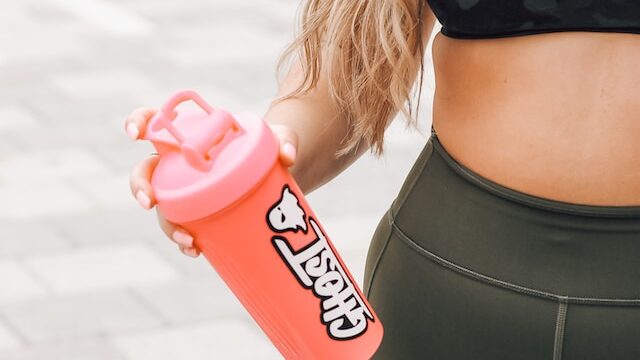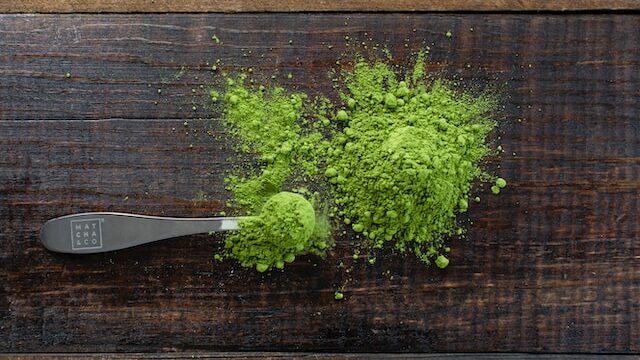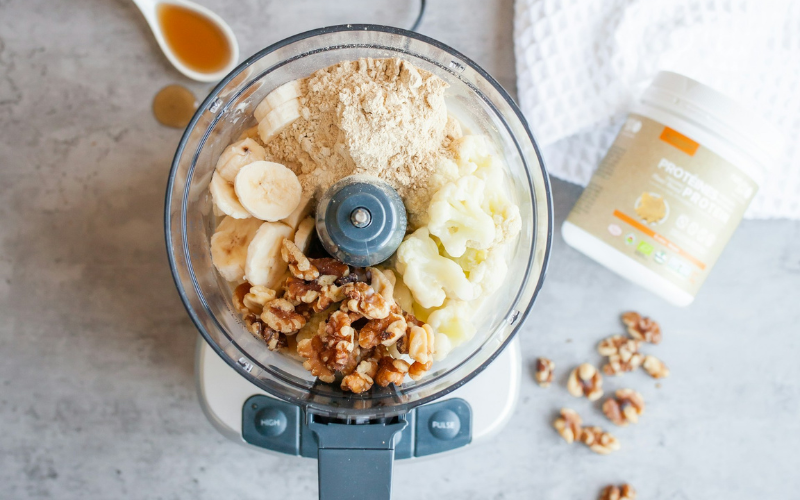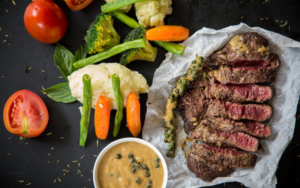Protein shakes are a staple in the fitness world, known for their convenience and ability to help meet dietary protein needs. Whether you’re looking to build muscle, lose weight, or simply maintain a healthy lifestyle, protein shakes can be a valuable addition to your diet.
Table of Contents
Key Takeaways:
- Protein shakes can support various health goals, including muscle building and weight loss.
- Choosing the right ingredients is crucial for maximizing the benefits of protein shakes.
- Customizing your protein shake can make it more enjoyable and suited to your dietary needs.
Understanding Protein Shakes
Protein shakes are more than just a fitness trend; they’re a practical solution for anyone needing a quick and efficient way to consume high-quality protein. They can serve as a meal replacement, a post-workout recovery drink, or a supplement to help meet daily protein requirements.
What Are Protein Shakes?
Protein shakes are beverages made by mixing protein powder with water, milk, or other liquids. They often include other ingredients to improve the taste and nutritional value, such as fruits, nuts, seeds, and sweeteners.

Why Protein Is Important
Protein is essential for the body’s growth and repair. It’s involved in making enzymes and hormones and is a critical component of every cell in the body. Consuming adequate protein is especially important for those who lead active lifestyles or are looking to improve their body composition.
Choosing Your Protein Powder
Selecting the right protein powder is the first step in creating your perfect shake. There are various types of protein powders available, each with its own set of benefits.
Types of Protein Powders
- Whey Protein: Fast-absorbing and contains all essential amino acids, making it ideal for post-workout recovery.
- Casein Protein: Slow-digesting, which provides a steady release of amino acids, perfect for a meal replacement or before bed.
- Plant-Based Proteins: Such as pea, rice, and hemp, are excellent for those following a vegan or vegetarian diet.
You can learn more about the different types of protein and their benefits in this detailed guide: Protein Powder for Muscle Building.
Liquid Choices for Protein Shakes
The liquid you choose can significantly affect the nutritional content and taste of your shake:
- Water: The lowest in calories and allows the flavor of the protein powder to stand out.
- Milk: Adds creaminess and extra protein but also increases the calorie content.
- Plant-Based Milks: Such as almond, soy, or oat milk, offer a lactose-free alternative with varying nutritional profiles.
Nutritional Additives for Your Shake
Enhancing your shake with fruits, nuts, and seeds can boost its nutritional value and flavor.
Fruits
Adding fruits like bananas, berries, or mangoes can provide natural sweetness, fiber, and essential vitamins.
Nuts and Seeds
Incorporating nuts and seeds like almonds, chia, or flaxseeds can increase the healthy fat content and add a satisfying crunch to your shake.
High-Calorie Shakes for Muscle Gain
For those looking to build muscle, a high-calorie shake can provide the necessary energy and nutrients to support growth.
Ingredients for Muscle-Building Shakes
- Protein Powder: Choose a high-quality whey or casein protein.
- Milk: Use whole milk for additional calories and protein.
- Fruits: Bananas and avocados are calorie-dense and add creaminess.
- Nuts/Seeds: Add nut butter or seeds for healthy fats and extra calories.
Low-Calorie Shakes for Weight Loss
If weight loss is your goal, a protein shake can be a low-calorie meal replacement that still provides essential nutrients.
Ingredients for Weight-Loss Shakes
- Protein Powder: Opt for a low-calorie, high-protein powder.
- Water or Plant-Based Milk: Keep the calorie count down with these liquids.
- Fruits: Use berries or melon for sweetness without too many calories.
- Greens: Spinach or kale can add nutrients without significantly increasing the calorie count.
Vegan Protein Shake Recipes
Vegan protein shakes can be just as delicious and nutritious as their non-vegan counterparts.
Plant-Based Protein Powders
- Pea Protein: A complete protein that’s easy to digest.
- Rice Protein: Often combined with pea protein to ensure all essential amino acids are present.
- Hemp Protein: Contains omega-3 and omega-6 fatty acids.
For more insights on vegan protein options, check out this article: The Ultimate Guide to Vegan Protein Powder Ingredients.
Vegan Shake Additives
- Fruits: All fruits are vegan, so feel free to add your favorites.
- Plant-Based Milks: Choose from almond, soy, oat, or coconut milk.
- Seeds: Chia, flax, and hemp seeds are great for adding texture and nutrients.
Customizing Your Protein Shake
Making a protein shake that you enjoy drinking is key to maintaining this healthy habit.
Flavor Enhancements
- Cocoa Powder: For a chocolatey flavor without added sugar.
- Vanilla Extract: Adds sweetness without calories.
- Cinnamon or Nutmeg: Spices can add depth to the flavor of your shake.
Sweeteners
- Natural Sweeteners: Such as stevia or monk fruit, can sweeten your shake without adding sugar.
- Artificial Sweeteners: Like sucralose, are calorie-free but may have an aftertaste.
Texture Tips
- Ice: Adds thickness and makes your shake more refreshing.
- Yogurt: Greek yogurt can make your shake creamier and add extra protein.
Nutritional Comparison Table
Here’s a quick comparison of different protein sources you might use in your shakes:
| Protein Source | Serving Size | Protein (g) | Calories | Fat (g) | Carbs (g) |
|---|---|---|---|---|---|
| Whey Powder | 1 scoop (30g) | 24 | 120 | 1 | 3 |
| Casein Powder | 1 scoop (30g) | 24 | 120 | 1 | 3 |
| Pea Powder | 1 scoop (30g) | 21 | 100 | 1.5 | 4 |
| Soy Milk | 1 cup (240ml) | 8 | 100 | 4 | 8 |
| Almond Milk | 1 cup (240ml) | 1 | 30 | 2.5 | 1 |
Enhancing Nutritional Value
A protein shake can be more than just protein; it’s an opportunity to infuse your diet with a variety of nutrients.
Superfoods to Add to Your Shake
- Spirulina: A powerhouse of nutrients including protein, B vitamins, and iron.
- Acai Berry: High in antioxidants and can add a unique flavor to your shake.
- Matcha: Provides a caffeine boost along with a hefty dose of antioxidants.

Fiber Boosters
- Oats: Adding oats can provide a fiber boost and a thicker texture.
- Psyllium Husk: A small amount can significantly increase the fiber content.
Calorie Control and Macronutrient Balance
Understanding the macronutrient profile of your shake is crucial, especially if you’re tracking your intake for weight management or athletic performance.
Macronutrient Table
Here’s how different additives can affect the macronutrient balance of your shake:
| Additive | Serving Size | Protein (g) | Carbs (g) | Fats (g) | Fiber (g) | Calories |
|---|---|---|---|---|---|---|
| Oats | 1/4 cup (21g) | 3 | 12 | 2.5 | 2 | 75 |
| Almond Butter | 2 tbsp (32g) | 7 | 6 | 18 | 4 | 200 |
| Greek Yogurt | 1/2 cup (120g) | 11 | 4 | 0.7 | 0 | 65 |
| Spirulina | 1 tsp (3g) | 2 | 1 | 0 | 0 | 20 |
Protein Shake Recipes for Special Diets
Whether you have dietary restrictions or are following a specific eating plan, there’s a protein shake recipe that’s right for you.
Keto-Friendly Shakes
- High-Fat Ingredients: Avocado, coconut oil, and MCT oil are great for adding healthy fats.
- Low-Carb Sweeteners: Use stevia or erythritol to keep carbs in check.
Paleo Protein Shakes
- Paleo-Friendly Protein Powders: Egg white or beef protein isolates are good options.
- Additives: Use honey for sweetness and almond butter for texture.
Protein Shake Mistakes to Avoid
Even with the best ingredients, there are common pitfalls you’ll want to avoid.
Common Mistakes
- Overloading on Sweeteners: Too much can add unnecessary calories and sugar.
- Skipping the Greens: Vegetables like spinach and kale can go unnoticed taste-wise but add a lot of nutrients.
- Ignoring Allergies: Always check ingredients for potential allergens, especially if using new protein powders or additives.
Frequently Asked Questions
Let’s address some common questions that arise when discussing protein shakes.
FAQs
- Can I replace meals with protein shakes?
- Yes, but ensure they contain other nutrients and not just protein.
- How many protein shakes can I have in a day?
- It depends on your total protein needs and dietary intake from other sources.
- Are protein shakes good for kids?
- Generally, kids should get their protein from whole foods, but consult a pediatrician for specific advice.
Exploring More on Protein Shakes
For those looking to expand their knowledge and recipe repertoire, exploring additional resources can be incredibly beneficial. Here are some external links to get you started:
- For a variety of protein shake recipes, check out Healthline’s collection.



